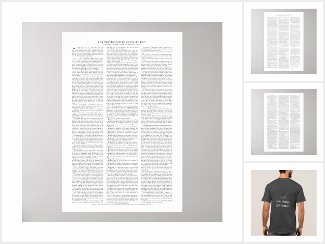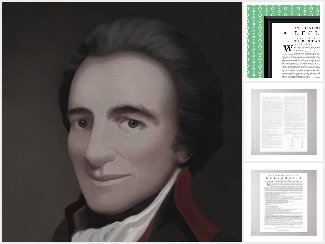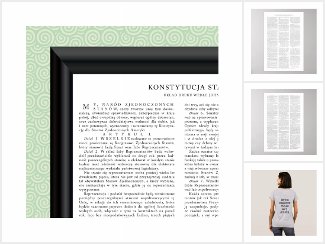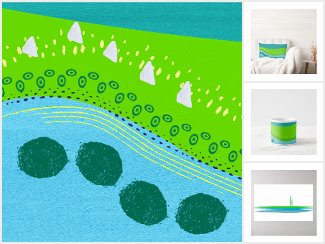Humans have evolved grammars along with perception for earthly space. Since those early times, learning languages has remained natural to people. It has been a human thing.

Grammatical time is not the clock, but just as with real time, we cannot touch or see it. To begin, we can manage as in fields of time, with mind practice.
■More about Part 1
Project status
graphics: under further development;
grammar guidance: formed.
1.2. Mind Practice
Thought and language originate in the mind: most exercises in this grammar course are to be done in thought, to encourage mind habits. ■More
4. Aspect Cognitive Mapping
Human walking or other moving about needs place and time, yet people do not need anyone to give rules or definitions for moving own body. ■More
Speech and language belong with the human need for fresh water, air, good clothing, and a decent roof. Grammar is a basic human need. It is healthy to have a good business with grammar. It is not healthy to have unnecessary difficulty.
10.1. Grammar Unreal or Real time
No group and no Government can properly prescribe precisely what should constitute the body of knowledge with which true education is concerned. — Franklin Delano Roosevelt | If I had permitted my failures, or what seemed to me at the time a lack of success… ― Calvin Coolidge ■More
10.2. The relative Progressive
Our cognitive variables and frames for grammatical time may complement one another: Modal verbs close their frames with auxiliary HAVE, whereas real-time frames open with the same auxiliary. We remember, cognitive variables and frames are not parameters. ■More
Sooner than later, life brings the talk about Unreal Past or Future in the Past, more, in Reported Speech. With grammatical time frames, we can get along easy.
■More about Part 2

Website search
Everyone thinks, speaks, or writes in real time. Sometimes, there is not even a moment to consult a rule or definition. Language MappingTM invokes human natural capability for logic.
■Try a simple brain teaser and see for yourself.
6.3. Exercises: the Aspect and the frame
1. The motmot had completely befallen for a piece of fresh stollen. 2. The skylark found nothing to outbid the bit of cosmos with a squid. 5. The golden frog behind the chilidog overslept and wept. 8. The spotted redshank bachelorette bewailed, and reset her buret for the bouncing bet. ■More
4.1. The idea of travel in grammar
Language is not a predetermined reality. Beginning to read a book or to watch a movie, we may wonder what there is going to be; somewhere around the middle, we may look back to what has happened, and think about things accomplished at the end. Our thought has grammar. ■More
8.2. Practice for all grammatical Aspects
3. The bumblebee had wished for the whole meal opportunity since Friday last. 4. The katydid wanted a new aureate bib, to match his figured bib of old. 7. The butterfly kissed the bee in the midst of her phiz, when he saw the golden grit. 9. Glow worms respected in varicolor, flexing… ■More
Books and grammar method information
The method and the books reflect on the author’s own language acquisition and learning to include graduated university studies, philology, American English. The grammar began as Teresa Pelka’s spontaneous invention when she was a child, in early 1970s. ■More
Copyright © Teresa Pelka, all rights reserved.
■TRANSLATION TO POLISH MAY HELP READERS IN SLAVIC LANGUAGES.
ADVERTISEMENT
Spring Flowing Colors
Grammar Off the Record
It is a fact of life that we do not graduate in linguistics before we hear or speak everyday language, or read Huck Finn. ■The Grapevine

Grapevine: Only real strawberries count
You might hear you go minus or plus infinity about the number of strawberries, but mind you, the Founders stated you couldn’t owe for strawberries that never existed, or so I guess they would have said in case. Grammar can have infinity too. ■More
8.1. Earthling basic cognitive variable
In thousands of years, people to think what there is {ON} a map, have not denied plausibility for places {IN} areas, routes {TO} places, as well as locations {AT} them. Early childhood learning to walk has gotten along with learning to talk. The pragmatics cannot break a reasonable rule. ■More
6.1. Our linguistic gravitation
Time extents, Present or Past, do not depend on the Aspect, Simple or Perfect. To express own thought well, we need the cognitive ground and time frame. The matter can be easy as with gravitation: when we have the ground, we close the frame. ■More
Chapter 10. Form relativity galore
If we guess or suppose, Past forms refer to the Present, and Present forms refer to the Future. It is only the anchored Past to remain in the grammatical Past. The matter is similar in many languages: if I was, si j’étais, gdybym był/a, если бы я был/а, wäre ich. ■More

Psycholinguistics
Linguistics
& Translation
Knowledge gains with good translation
■Public Domain
Translation. com
American English & Polish

Bibliography
The language story entire is five books, inclusive of a flexion framework, and about more than two languages. The author has made observations on language as really spoken and written, and all the work is her conscious thought about own cognitive variables. ■More
Internet Archive,
the free text and image repository
■Feel welcome to use my free materials■
The posters are available to shop online as well.
ADVERTISEMENT

The world may never have seen her original handwriting, if her skill was taken for supernatural. Feel welcome to Poems by Emily Dickinson prepared for print by Teresa Pelka: thematic stanzas, notes on the Greek and Latin inspiration, the correlative with Webster 1828, and the Aristotelian motif, Things perpetual — these are not in time, but in eternity.
■Free access, Internet Archive
■E-pub | NOOK Book | Kindle
■Hard cover, Barnes & Noble | Lulu
Part 1. Towards the grammatical Aspect
We draw conclusions from natural language acquisition and begin with verbs, to be, to have, to do, and the verb form will. Part 1 works verb syntax for the Simple, Progressive, and Perfect, along with the Affirmative, Negative, Interrogative, and Negative Interrogative. ■More
Part 2. Towards the time frame
“Future in the Past” or “Unreal Past”? The Simple against the Perfect, and the Simple versus the Progressive, we make out a time frame. Devices as the Modal Net and Form Relativity may render the Conditional or Sequence of tenses redundant, for “unreal” grammar to work in real time. ■More

A Shapely and Handsome Fable
Philosopher Handsome spoke and wrote about knowledge like he had the legendary manual for Earth and the Universe at hand. People yet admired his mind, for a good embrace on the “variegated domains of Nature”.
Handsome writs became little known in their proper shape, after emperor Justinian damaged schools of philosophy; and since those olden times there has been much fallacy and nothingness, in the place of proper philosophical schooling, says philologue Taylor. ■More

The Fable of Philosopher Honeybee
Philosopher Honeybee did not consider it impossible, that all humanity could be more or less free of demerit one day, he yet never cared to proliferate evil in order to help keep the shape of the world.
The story was that if people were free in this specified regard — free of demerit, that is — the skies would become a bit brighter, having returned to a new shape for things. Honeybee reckoned, things might assume new shapes, but they never could return to new shapes, because a new shape needs to occur first. ■More




















